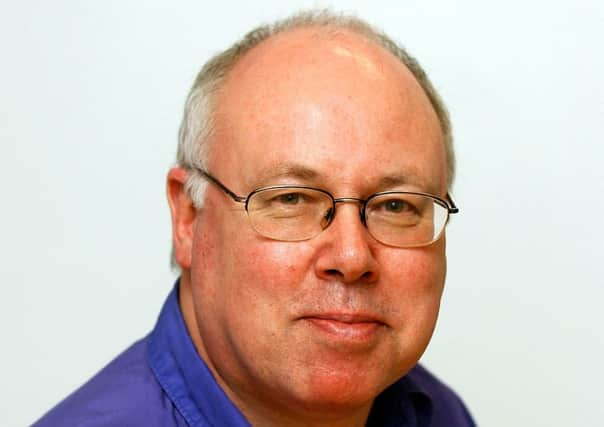Comment: Carney cannot win on interest rates


In fact he used a speech yesterday to the global great and good gathered at Davos to hint (in the Delphic code of central bankers) that interest rates will be low for the next historical period.
“Even in the medium term, the level of interest rates necessary to sustain low unemployment and price stability will be somewhat lower than before the crisis,” he said.
Advertisement
Hide AdAdvertisement
Hide AdActually, a closer reading of those employment figures suggests we shouldn’t uncross our fingers yet.
Remember, these numbers are compiled using an opinion poll with a huge margin of error. Half the new jobs are self-employed, while the giant fall in unemployment recorded in some English regions (e.g. the Midlands) bears no relationship to what is happening on the ground.
The experimental monthly data series buried in the appendix even shows unemployment rising in November.
Of course, Carney and the Chancellor are in no rush to raise interest rates this side of the 2015 General Election. However, contrary to the simplistic media view, real interests are set in the market place, not Threadneedle Street.
The Bank can pump extra liquidity into the banking system to make more credit available, which usually depresses rates. But if the market takes the hump, or thinks rates are going to rise anyway, neither the monetary policy committee nor the Chancellor can hold out against market sentiment.
On Wednesday, when the new job figures were announced, the yield on ten-year British government bonds jumped to its highest in eight years.
This suggests the market is pricing in a rate rise by the end of this year and is ignoring Carney’s “forward guidance” that low rates will prevail. Carney may say he doesn’t need to raise rates because inflation is falling fast. But inflation is falling only because sterling is gaining strength, and foreigners are buying pounds because they expect higher interest rates in the UK. This is a tussle the Bank can’t win.
Iran makes oil offer to break West’s embargo
DAVOS also saw Iran’s president, Hassan Rouhani, lob a diplomatic time bomb into the cosy global chatfest.
Advertisement
Hide AdAdvertisement
Hide AdRouhani is desperate to reboot the ailing Iranian economy, which has virtually collapsed as a result of an unusually successful UN embargo aimed at curbing Tehran’s nuclear ambitions.
What Rouhani and his oil minister, Bijan Zanganeh, offered at Davos is a surprise: breaking the Opec oil cartel. Rouhani proposes a new international agency tasked with stabilising global oil prices. Tehran is ready to put “some” of its oil and gas reserves at the disposal of the body. This helps get sanctions lifted, which will provide Iran with access to investment to double its petroleum production.
The implication for the West is that it would no longer have to placate Opec (read: Saudi Arabia, no friend of Iran) to keep energy prices in check.
The import of this offer has been lost amongst chat about defusing the Syrian crisis, but removing the oil embargo is a game changer.
Reportedly, the Iranian delegation at Davos is engaged in heavy lobbying of executives from BP, ENI, and Total. There’s no doubt now that Tehran is willing to deal.